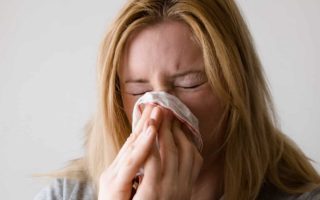
Using an air purifier is a great way to keep the air in your home healthy and clean. One common question people have about these machines, though, is specifically whether they can keep you from getting sick. To answer this question, we need to look at the features of different air purifiers and the causes of sickness. Here’s what you need to know about air purifiers and how they may be able to help prevent you from getting sick the next time something is going around.
What Do Air Purifiers Really Do?
When air is passed through a typical air purifier, it is forced through a filter that either consists of carbon or HEPA material. Carbon is used to remove odors, gases and VOCs from the air, while HEPA filters take out solid particulates like dust, pollen and mold spores. In many cases, these two types of filters are built into the same unit to provide broad spectrum protection from both gases and solids.
What About Bacteria and Viruses?
The two main causes of contagious diseases are airborne bacteria and viruses. The problem, from an air purification perspective, is that these organisms are so tiny that even a HEPA filter doesn’t catch most of them. So, while a normal air purifier will remove many of the potentially unhealthy contaminants from your home air, it doesn’t have the ability to effectively target the root causes of sickness.
So, How Can an Air Purifier Keep You From Getting Sick?
While HEPA and carbon filters can’t target bacteria or viruses very effectively, some air purifiers are equipped with systems meant for this very application. The most common way for an air purifier to eliminate these contaminants is with a UV germicidal lamp. Intense UV light can neutralize bacteria and viruses by disrupting their unprotected DNA. For this reason, UV systems are often used in hospitals. These UV lamps are often added to air purifiers that already include HEPA and carbon filtration to expand their protection. A few examples of these multi-filter units with UV lamps include the Fields Controls TRIO, Airpura UV600 and AllerAir AirMedic Pro 6.
Another method of dealing with pathogens in the air is by subjecting them to intense heat. One air purifier brand, Airfree, has produced a line of models that pass air through a heated ceramic core, thus killing pathogens and eliminating pollen, mold spores and other solids. Be aware, though, that these air purifiers don’t include carbon filters and so can’t offer protection from gases.
Using either one of these systems, an air purifier can actually make you less likely to get a cold, flu or bacterial infection that’s going around. Keep in mind, though, that the main benefit of an air purifier is the long-term health effect of breathing air that isn’t contaminated or polluted. Even if you use an air purifier in the home, there’s always a chance you’ll catch something from someone at work or in public. Air purification with UV or the application of heat is a good way to reduce your chances of getting sick, but it will not absolutely guarantee that you won’t.